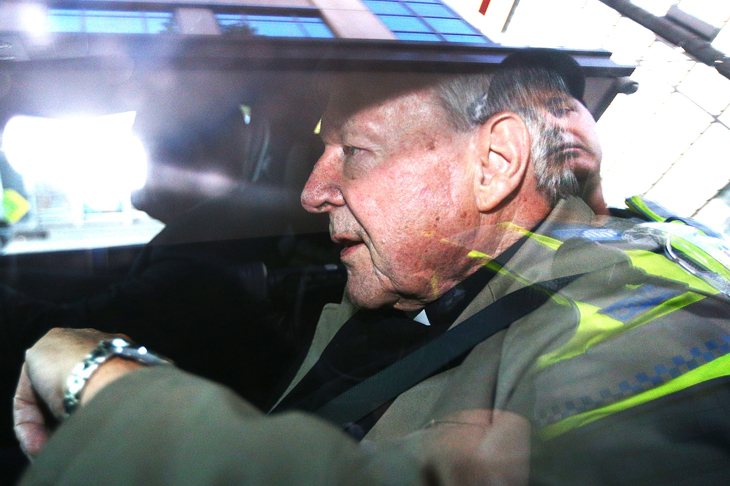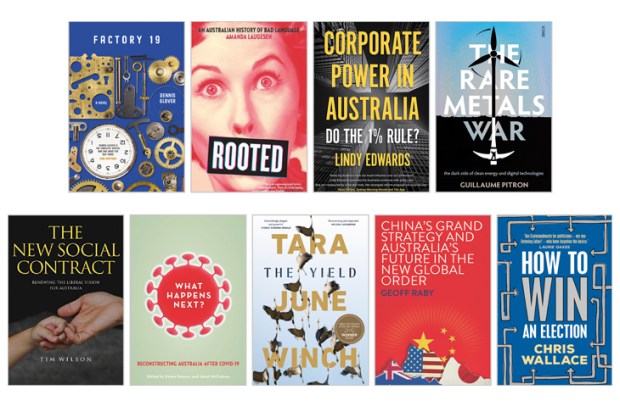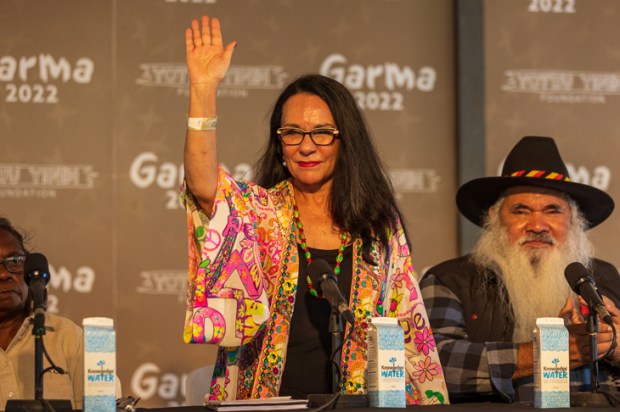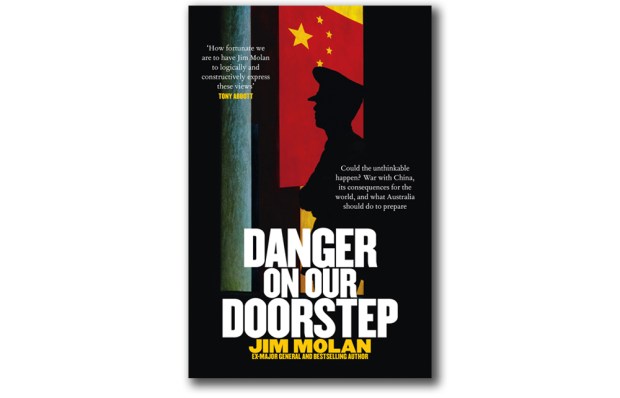This is the prison diary that should never have been written because Cardinal George Pell should never have been in gaol in the first place. He should never have been investigated, never have been charged and never have been convicted. As the High Court ultimately found, the case against him was always inherently implausible, to the point of being almost impossible. Yet, as the cardinal himself would say, by divine providence, ‘all will be well and all manner of things will be well’. From the unjust imprisonment of an innocent man has come a mighty chronicle of human resilience fortified by faith in God.
George Pell is Australia’s greatest ever churchman: a fine Aussie rules footballer who could have played in the AFL of his day, the holder of a doctorate in philosophy from Oxford, an archbishop of both Melbourne and Sydney, and finally a curial cardinal entrusted by the Pope with cleaning up the Vatican’s labyrinthine finances. To those who know him, he’s always been a warm and humane man and a pastoral priest. To his antagonists in the culture wars, including many ‘progressive Catholics’, he’d become a hate-figure: whose Christian orthodoxy, public conservatism including scepticism about climate change, and sometimes imperious platform manner became the embodiment all they found odious in the Church. How convenient, then, that after the highly politicised Victoria Police started trawling for a complainant, someone eventually came forward with an improbable tale about being molested in the cathedral sacristy after high mass one Sunday twenty-odd years ago.
Pell’s Prison Journal should quell any doubts that still may linger, even after the High Court’s resounding exoneration, about the character of this exemplary man. For someone pledged to a life of the highest ideals, who knows that he’s innocent, to be found guilty of a heinous crime, on the basis of one person’s uncorroborated testimony, would be a form of crucifixion; worse, perhaps, than the real thing, because the agony is not ended by death. Well may one cry, ‘My God, My God, why have you forsaken me?’. I suspect the cardinal holds back on giving us his darkest moments; it is, after all, the duty of a prince of the Church to be inspirational. A poet may surrender to despair, for the purpose of his art, but a leader never can, even in private. The cardinal never commits the offence of breaking down in public; yet he gives us chapter and verse of his struggle to stay hopeful despite so many disappointments that were manifestly unmerited. Indeed, it’s almost a manual for how to stay strong in the face of unfairness.
This is the first of three volumes of diary entries, and covers his initial five months in solitary confinement in the Melbourne Assessment Prison. At some point in almost every day, he recorded his experiences and reflections in the notebooks he was allowed to have, along with, at any one time, a breviary (or prayer book), six other books and six magazines. For most days, we get what actually happened (usually an hours’ exercise in the yard, sometimes a visit, innumerable letters, reading and TV) plus his thoughts about the day’s scripture, small happenings and events beyond the walls. Even for a cardinal, prison life is full of humiliations: no razor, no mirror, no belt – lest they become suicide implements – food that’s normally cold by the time it’s arrived, and routine strip searches. He can’t say mass, an extraordinary deprivation for a priest, because even altar wine is banned. He mostly puts up with this, with only a bit of grumbling to himself, knowing that prison is designed to break people; such as the fellow inmates he never sees, who start shrieking or banging at any hour of the day or night. He becomes a regular correspondent with some and manages to find good even in most of them.
Every page of these diaries testifies to a fine mind, considerable erudition and much deep thought. Naturally, for someone in his position, he goes over and over the problem of suffering, especially undeserved suffering. There is no final answer, of course, except faith. As someone of lesser faith, following these pages, I often found myself asking, along with the centurion of the Gospel, ‘Lord, I believe, help my unbelief’.
This is the kind of book that could be pondered, entry-by-entry, at the close of each day, because every one of these reflections has universal lessons, despite the undoubted tedium of prison life. There are plenty of prayerful injunctions to self: ‘help me to keep hatred out of my heart. Not only should I speak the truth in love, but I should think the truth in love’. There are lots of encouraging observations from his readings, such as this from Augustine: God commands us to endure our troubles, not to love them. There’s much wry commentary on the paradox of evil people living charmed lives while the good suffer through no moral fault of their own. And there’s abundant practical wisdom, such as: ‘one of the keys to surviving… is to concentrate on doing what one can rather than lamenting what one cannot do’.
There’s a treasure trove of poetry, prayer, philosophy, literature and history that’s glimpsed on the way through, all of it apt and instructive. And snippets of the cardinal’s thinking on contemporary issues: ‘all the great religions are not the same’; the church should never become ‘the bland leading the bland’; ‘patriotism, love of country, and a willingness to serve and make sacrifices are not the refuges of scoundrels’; ‘the free market economy is the foundation of our prosperity… but for the market to sustain societies… a moral framework is needed’; and his love of good Anglican hymns. There are also occasional jokes against himself, such as falling asleep during a past pilgrimage, and being woken by a scripturally literate student asking, ‘can you not watch one hour with me?’.
This volume closes with the cardinal impatiently awaiting the outcome of his first appeal. He is confident of success but, unlike the diary writer, the reader knows the outcome. I suspect the days following might have been his darkest but await the next volume to find out.
Got something to add? Join the discussion and comment below.
Get 10 issues for just $10
Subscribe to The Spectator Australia today for the next 10 magazine issues, plus full online access, for just $10.
You might disagree with half of it, but you’ll enjoy reading all of it. Try your first month for free, then just $2 a week for the remainder of your first year.














Comments
Don't miss out
Join the conversation with other Spectator Australia readers. Subscribe to leave a comment.
SUBSCRIBEAlready a subscriber? Log in